Labrador marks 100 years since the Spanish Flu
Simultaneous ceremonies were held around Labrador Monday to mark 100 years since the deadly Spanish Flu arrived.
In the now-abandoned community of Okak, it killed nearly one third of Labrador's Inuit population.
"You mark significant events like this hopefully to avert another event like this from occurring," said Alex Saunders, who is the son of a survivor.
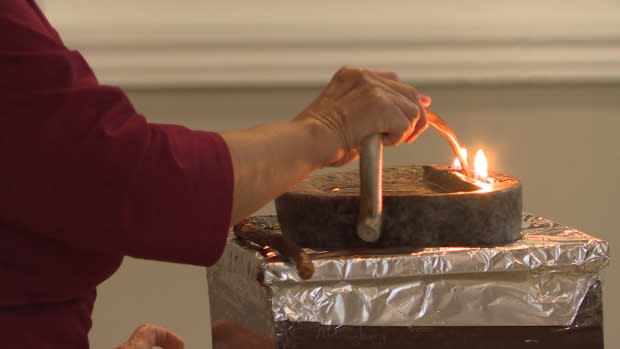
"I think it's very important that we commemorate events like this to be very aware of our own identity."
Monday night's events acknowledged those who perished, and those who survived the epidemic in the Okak area, which includes Hebron and Sillutalik. The illness was brought to the isolated Northern community by infected crew members aboard a supply vessel from St. John's in October of 1918. In Okak, only 59 of 263 residents survived.
"They had to survive and they had to move on and find places to live." - Sophie Ford
"We live in hope of becoming a memory," Saunders quoted from a commemorative plaque laid in Okak in the name of its descendents, as he spoke to a mostly-full room at the Friendship Centre in Happy Valley-Goose Bay.
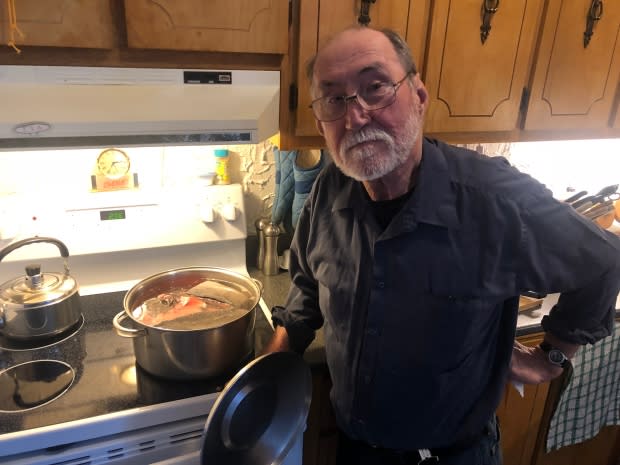
"Therefore, to live in the hearts of those we leave behind creates immortality."
Family honours
Rosina Pamak Ford was one of those survivors.
"She survived so much and she always had such a wonderful attitude," granddaughter Patti Penney said.
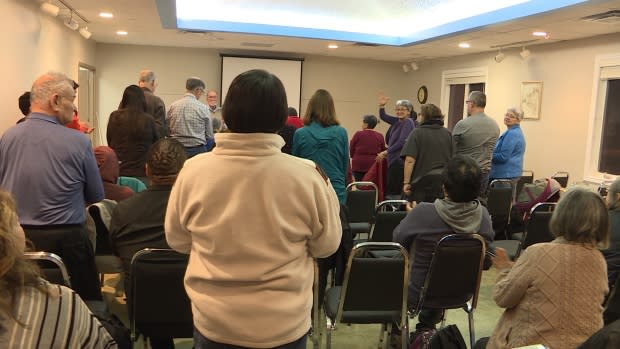
"Although it killed a lot of people, it never killed her spirit."
Penney said her grandmother told her stories of the horrific events and the sudden deaths of her family members.
"She went to check on her mother and her mother was dead in the bed but her little brother was still nursing, he was only 11 months old at the time," Penney said.
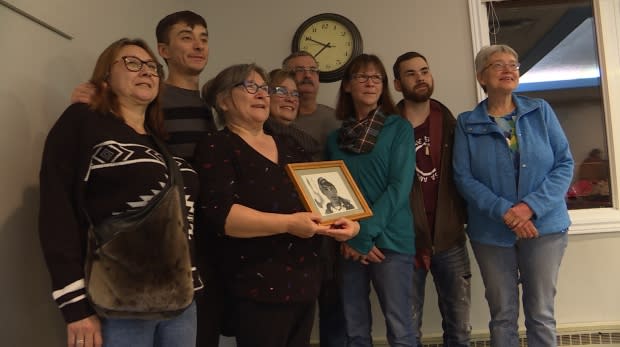
"So she ended up being the caregiver for him."
Penney wasn't the only descendant of Rosina Pamak Ford in attendance. Granddaughter Sophie Ford was there too. She held her grandmother's picture during the singing of a hymn.
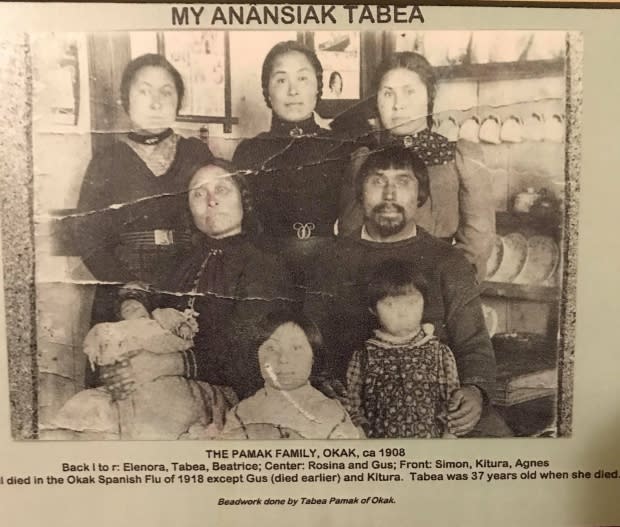
"Everything happened so fast and all the adults were gone so there was no mourning period," Ford said.
"They had to survive and they had to move on and find places to live."
Ford said Monday's commemoration gave closure, not just for the family that was there but also for her grandmother.
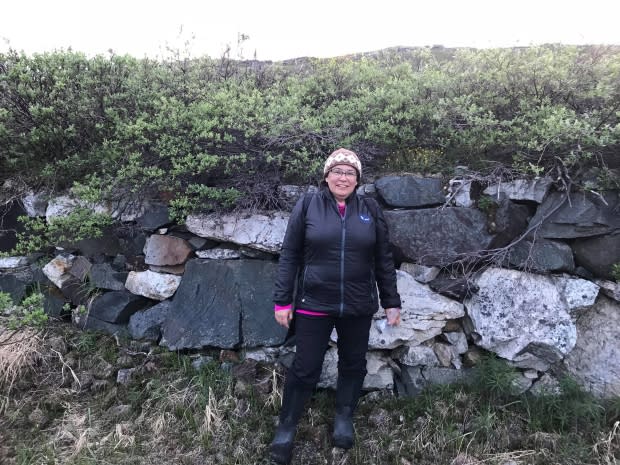
"She was a strong woman and she really truly believed in family unity," Ford said.
"And today our family is all connected."

